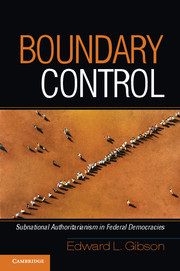1 - Introduction
Published online by Cambridge University Press: 05 January 2013
Summary
Our universe is not local.
– Brian GreeneIn 1983 the luminous December sun shone on the nation's capital as Raúl Alfonsín, the newly inaugurated Argentine president, waved to enthusiastic crowds from his open-topped car. The crowds cheered not only the man wearing the sash but also the political event he embodied – the birth of a new democracy. Furthermore, the horrors and the drama of the years leading to this event gave national and international observers alike the sense that Argentina had finally turned its back on a long legacy of authoritarian politics. This transition to democracy was for real, and the political officials getting ready to govern, with all their weaknesses and predictable missteps along the way, would never again permit authoritarian rulers to control power in the nation's capital.
At around the same time, far from the glare of the national press corps, and even farther from international scrutiny, an old political boss stepped assuredly into the gubernatorial palace of the northern province of Santiago del Estero. The surroundings were familiar to him. Carlos Arturo Juárez had first been elected governor of Santiago in 1949 and now looked forward to a third term in office. Juárez had been the province’s puppet master for more than three decades. In the course of his career, he had maneuvered skillfully against challenges to his hold on the province from party rivals, including from the great Juan Perón himself. He had also prevailed against several military governments, whose occupations he waited out in comfortable exile financed by provincial construction magnates made wealthy during his terms in office. In 1983 he returned from one such period of exile, and his loyal local Peronist Party machine mobilized to hand him another election victory. As he surveyed the political landscape of a province he had not seen for seven years, Juárez remarked casually to a reporter, “Santiago del Estero is Carlos Arturo Juárez. I say it without vanity.”
Information
- Type
- Chapter
- Information
- Boundary ControlSubnational Authoritarianism in Federal Democracies, pp. 1 - 8Publisher: Cambridge University PressPrint publication year: 2013
